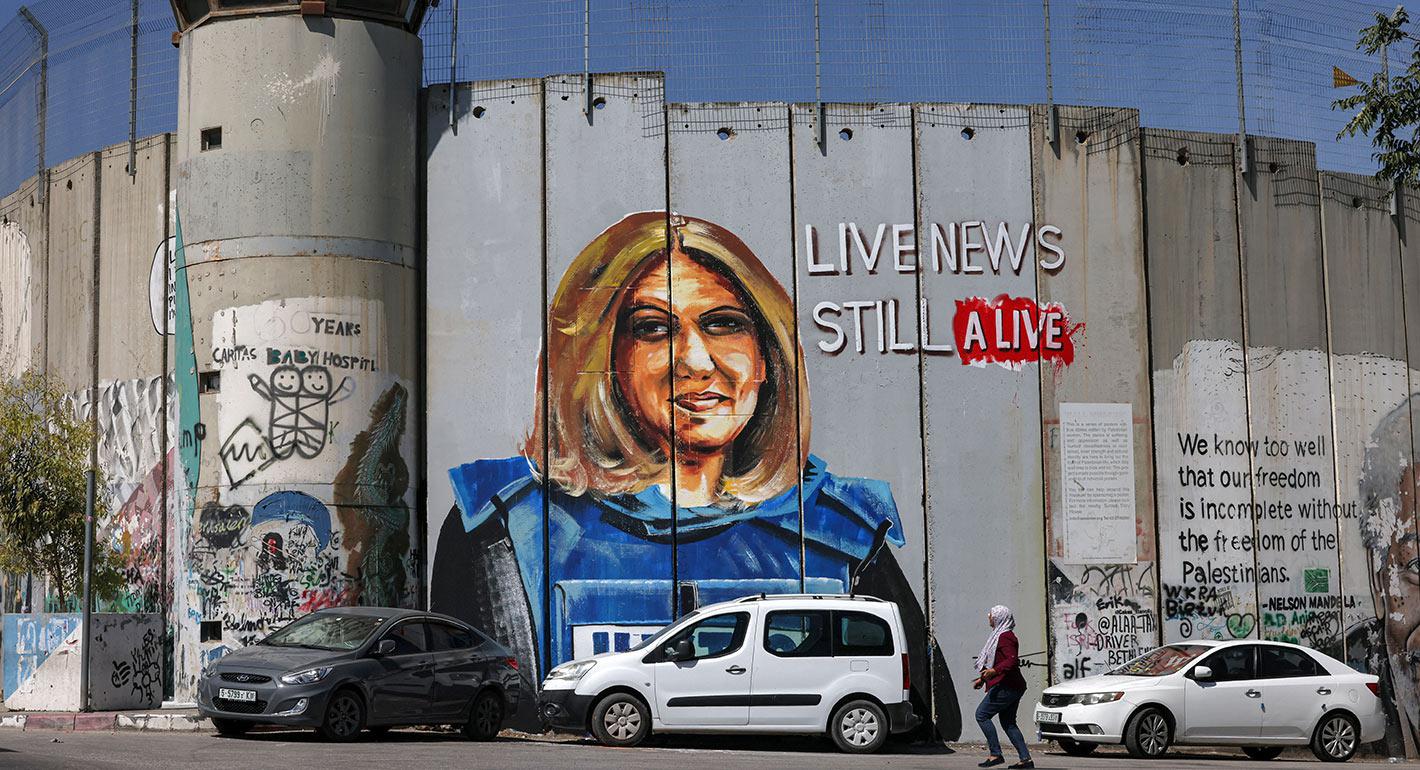When on May 11, 2022, Shireen Abu Akleh, the veteran war correspondent of Al Jazeera Media Network, was shot dead while covering an Israeli military raid in the occupied West Bank city of Jenin, a flagrant act of violence and a direct threat to the freedom of the press was committed. Abu Akleh, who was wearing a bulletproof helmet and a flak jacket with press markings, was killed under the “clear and direct view” of the Israeli military. Although Palestinian officials have said that Ms. Abu Akleh was intentionally killed, there is no fathomable reason for deliberately targeting her, especially since she is an American national and has no affiliation to any of the armed Palestinian factions. The only explanation is that her death was meant to intimidate other Palestinian journalists and prevent them from communicating and sending a threatening message to Palestinian journalists, to refrain from covering news related to the Israeli military operations in the Palestinian territories.
Israel, which has yet to officially admit its responsibility for the murder of Abu Akleh, has long enjoyed impunity in such situations as a result of unwavering American support ensuring that all Security Council attempts to condemn Israeli crimes are vetoed. And although the State Department has called for an independent investigation into the killing of Abu Akleh, the Americans also said that they would prefer that Israel lead the investigation rather than the ICC. Nonetheless, the Palestinian Authority (PA), has submitted Abu Akleh’s file to the ICC’s prosecutor, insisting that the international community should, for once, hold Israel accountable for its crimes against Palestinians.
The PA’s attempt to use the ICC against Israel in the case of Abu Akleh could be part of its strategy to document other Israeli violations against Palestinian civilians. Yet, it is no secret that Israeli officials have been trying to convince Mahmoud Abbas, the president of the State of Palestine and the Palestinian National Authority, to shelve the ICC probe of war crimes allegedly committed by Israel. Turning to the ICC could also provide the PA with leverage to bring Israel back to the negotiating table and ensure that the Israelis take concrete measures to regain the trust of Palestinians. Given the fact that successive Israeli governments have long stalled in taking steps to resume the peace process, the ICC move may rattle the Israelis and force them to finally pursue a political outcome when discussing the two-state solution and Israeli settlement activities in the West Bank.
Unfortunately, however, this strategy could also be detrimental to whatever dim prospects still exist for a two-state solution as it could antagonize the Israelis who have a long history of ignoring the decisions of international bodies, including the Hague-based court. In fact, Israel has declared that it does not recognize the authority of the ICC to investigate its actions, insisting that the Palestinians have neither a sovereign state nor a defined border. In 2019, Israeli leaders attacked the ICC’s prosecutor Fatou Bensouda and accused her office of antisemitic bias when she decided to press ahead with her investigation into alleged war crimes committed by Israeli soldiers in the occupied Palestinian territories.
Thus, although internationalizing the conflict through the ICC may seem like an effective strategy to the Palestinians, it is unlikely that the Israelis will respond positively. Israeli leaders are still unwilling to recognize their Palestinian counterparts as partners in the resolution of the conflict, and they continue to stall the peace process while also refusing to agree on the line of the border separating Israel and a prospective Palestinian state.
Despite the shock wave that the murder of Abu Akleh has created among Arab and Western officials who mourned and condemned her death, Israel’s official response was to deny and deflect. Israeli Defense Minister Benny Gantz said that he was “very sorry for what happened,” but maintained that “despite the forensic investigation, it was not possible to reach a definitive conclusion.” He continued, “unfortunately, it is not possible to determine the source of the shooting, and as such, the investigation will continue.”
We say, unfortunately, the killer will remain free, convinced that he can enjoy impunity, as happened when other journalists were killed before and after the killing of Shireen Abu Akleh.
Reham Owda is a Palestinian political analyst based in Gaza. You can follow her on Twitter @RehamOwda.


.jpg)



